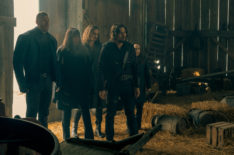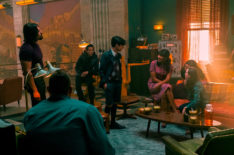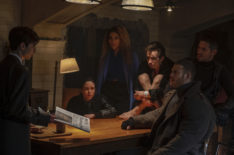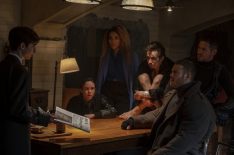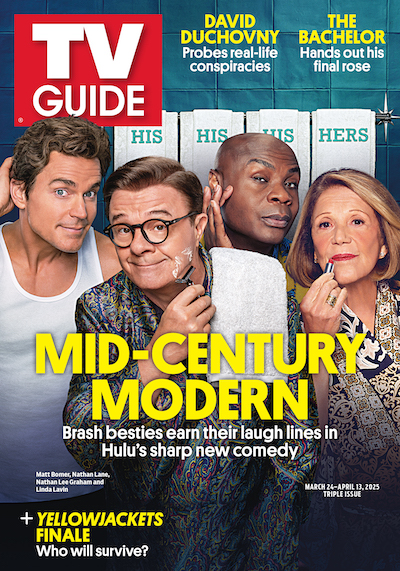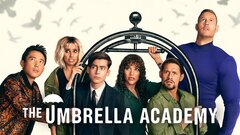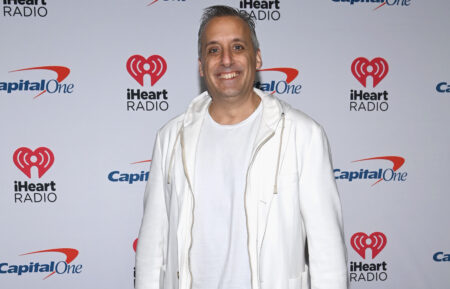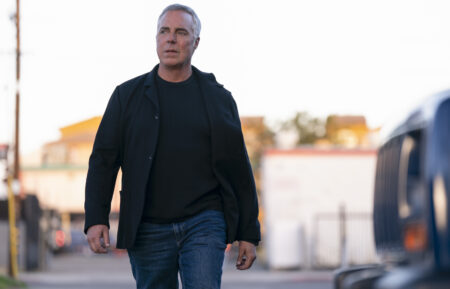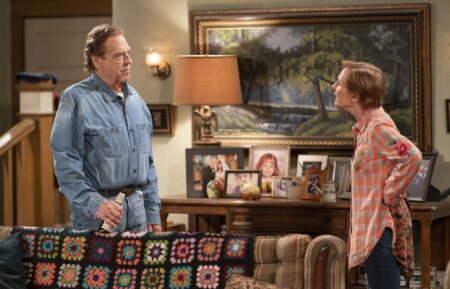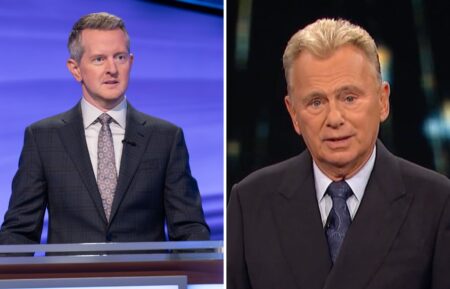‘Umbrella Academy’s David Castañeda on Parallels Between Diego & Lila in Season 2
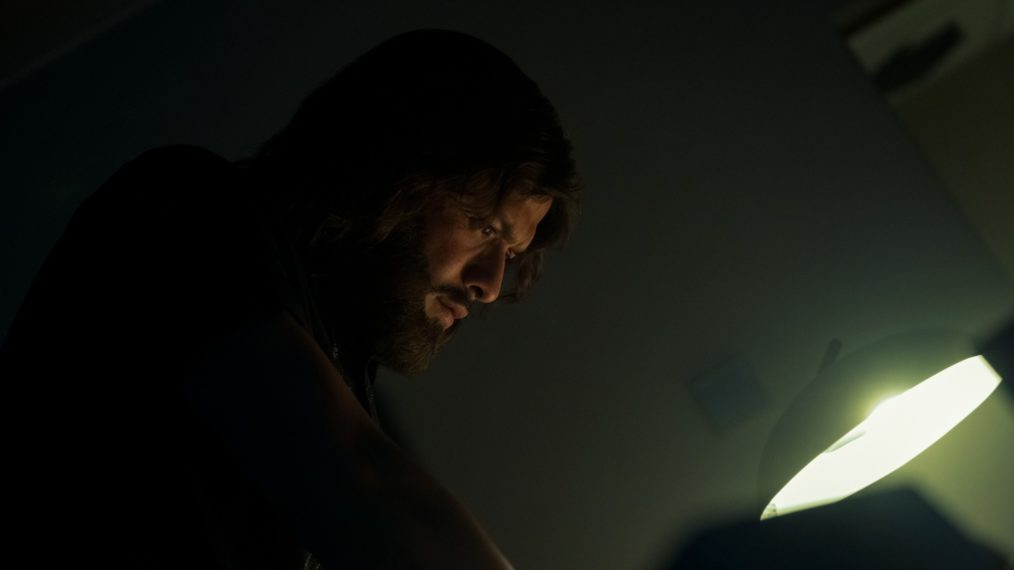
Q&A
Season 2 of The Umbrella Academy is finally coming to our screens on July 31, and we really couldn’t be more excited.
Last season, we were introduced to the eclectic Umbrella Academy gang, whose disparate and scattered backgrounds are linked by their birth on the same day (October 1, 1989) and the fact that they all harbor superpowers that have been groomed by their enigmatic adoptive father, Sir Reginald Hargreeves (Colm Feore).
With his sudden death, the siblings were all reunited for the first time in years. Then all hell broke loose as they barreled quickly toward the end of the world, brought on by the incalculable powers of Vanya/Number Seven (Ellen Page).
Many questions were left unanswered in the Season 1 finale as the Hargreeves siblings escaped the apocalypse via Number Five’s (Aidan Gallagher) time-traveling powers. After a year of agonizing waiting, we finally have some answers with an epic trailer.
Here, series lead David Castañeda breaks down for us what’s to come this go around for the Hargreeves, his character Diego, and more.
The last time we saw the Hargreeves was on April 1, 2019, and the world was reaching its demise as the siblings jumped through time. When Season 2 picks up, what’s going on? For example, you guys aren’t all together, which is interesting.
Yes. Well, obviously, they do travel back through time, as you see in the trailer, and are dispersed throughout Dallas throughout the 1960s. And they’re living their own lives with their own motives, trying to live as normally as possible.
Five is the only one who can possibly get them out of this timeline. But by the time he shows up, no one really wants to go back home. Everyone’s set themselves straight in this world, and they’ve found purpose. I think that’s a big thing. Because once R.H. in Season 1 dies, a lot of them are still trying to figure out who they are and what they’re doing. I think the ’60s really gives all of the siblings a reason to want to stay. And Five comes in and is trying not to allow them to mess up the timeline. That creates a lot of conflict.
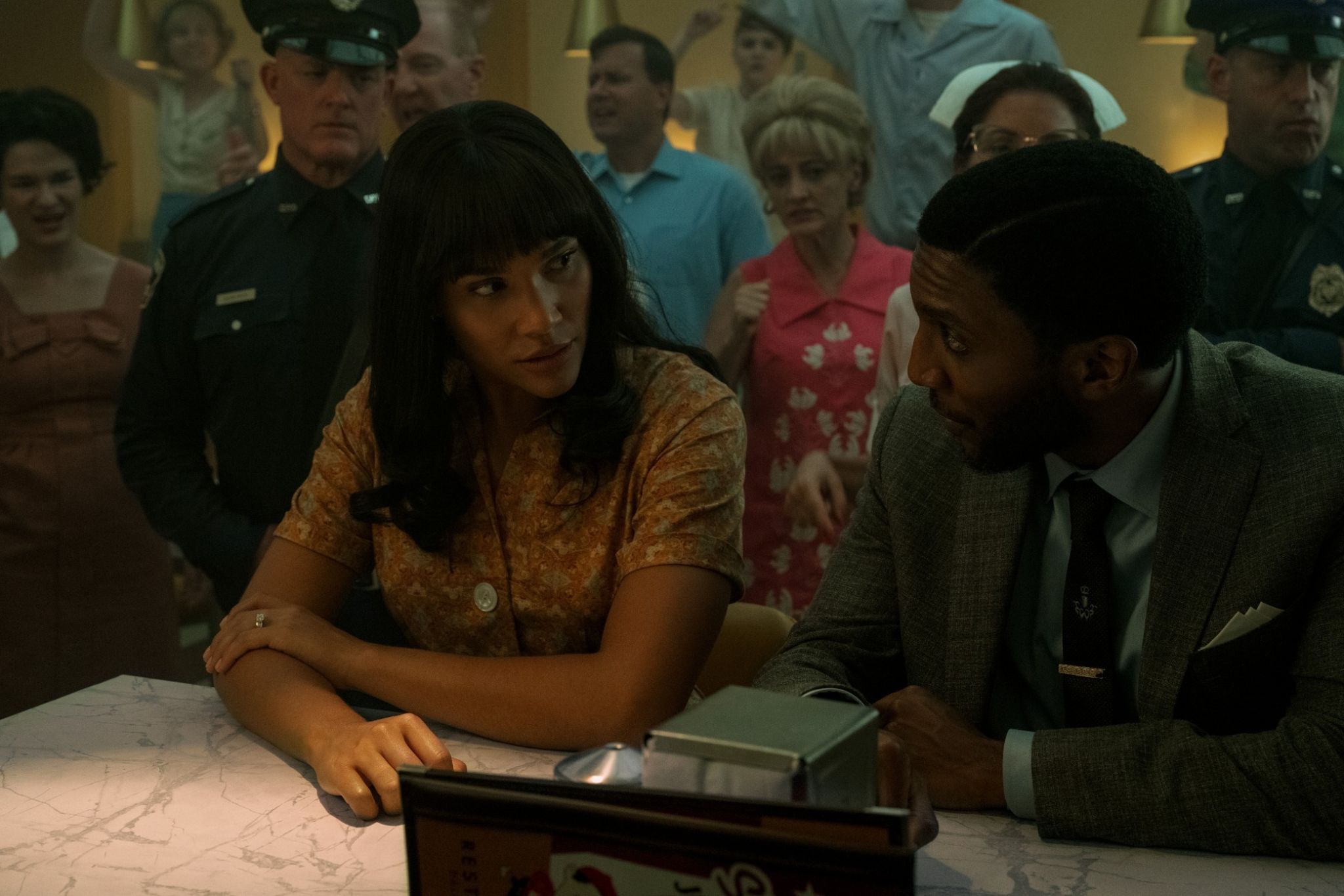
(Christos Kalohoridis/Netflix)
The real world social and political history of the 1960s factors heavily into the plot. Could you talk about what’s happening in the world throughout the time and setting of this season? It’s really interesting, especially compared with the problems in our society today.
Obviously everything in this second season is very relevant to today. I think some people will see it and feel that parts of things haven’t changed, and it feels very on the nose. But the truth is, when we were shooting, obviously none of what is going on now was happening. It just happened to be the perfect storm.
But it’s just to show you that we’re still living in a place where you’re going to find these same social problems. And although things have morphed a bit when compared to the ’60s, where social injustice was very prevalent, it’s still to this day present. But it has changed into something much more, I think. We try to tell ourselves that we have evolved, but the truth is, injustice is still going to be around, until we really shake things up.
Right, and that was something that I thought a lot about when I was watching as well. There’s really interesting explorations not just of racial injustice and police brutality, but also sexuality, and even mental health and the conversation around that.
Yeah. I think when we talked to [showrunner] Steve Blackman, and he pitched us the story, a lot of it was just very much so about how do we do it justice to tell a story like this? Because there are some sensitive topics here. And obviously, we all felt like we were collaborating and trying to not so much profit from it, but just tell a really good story, where people felt like they weren’t being talked to.
Because I think a lot of the stake can be about making it a learning lesson, rather than just telling the story, and letting people connect to it. Whatever they get out of it, that’s their gem, and that’s their own thing to take from it. That was a big thing for all of us coming in. Just to do it justice.
You can incorporate all of those larger social themes, while still maintaining the integrity of the show and the excitement of the action and its hilariousness at times. It all wraps together rather nicely.
Yes, I think so. If you’re catching that, that’s amazing because we’re living in Toronto and shooting, so we’re in this…..bubble. And we were just trying to take the project day by day. But once we saw the full scope [of this season], we realized it’s bigger than any of us thought.
What develops for Diego with all that has transpired moving into Season 2?
When Diego comes into the season, he’s trying to break away from the identity of the Umbrella Academy, how his siblings see him, how he sees himself. I personally relate to that, in terms of not wanting to be identified as just one thing. I’m a variety of things, and I think my fellow companions around the world can feel that. They connect to that.
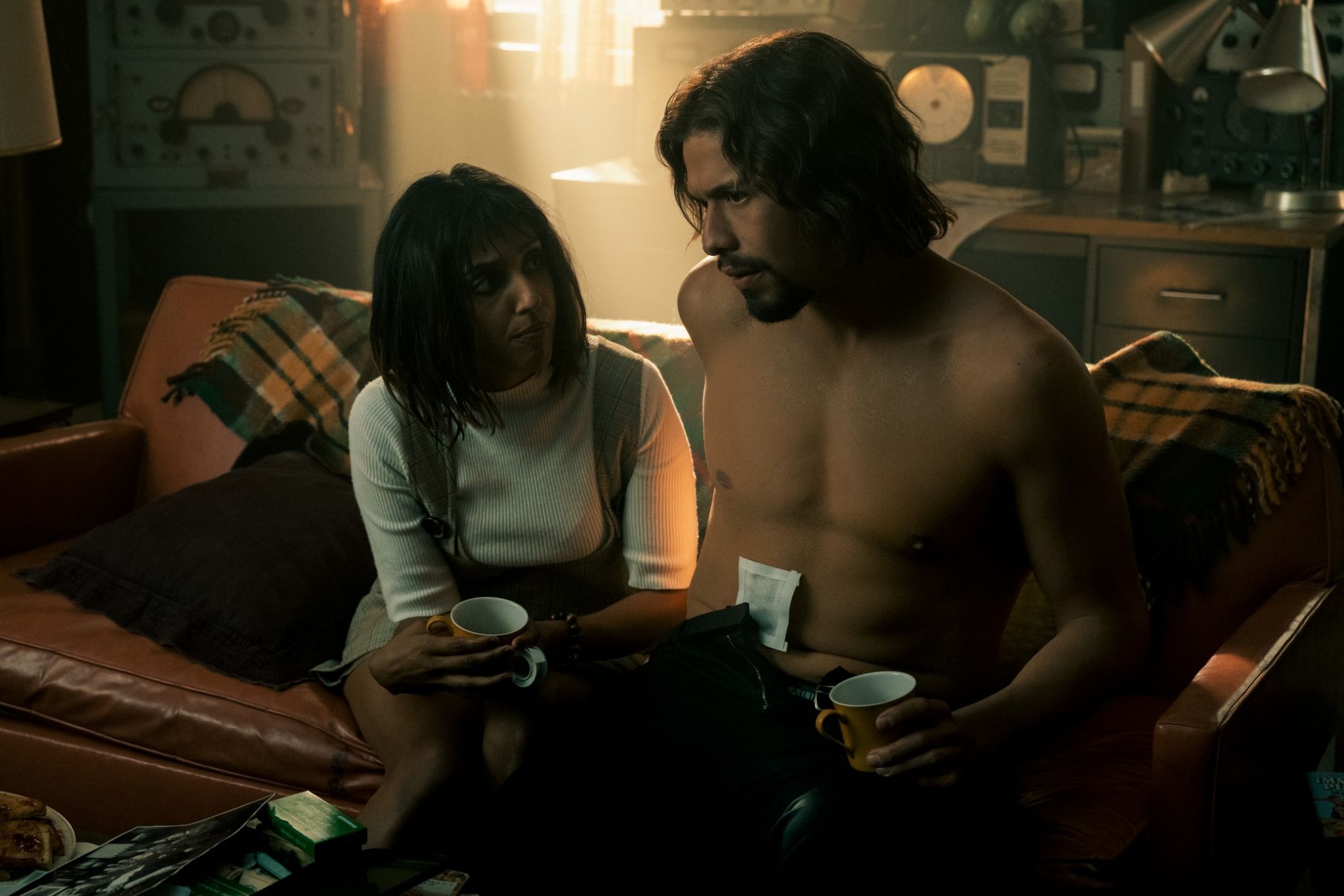
(Christos Kalohoridis/Netflix)
There’s an interesting character in his life: Lila. How does she come into the fold?
She’s obviously a companion that he meets when he’s in the insane asylum, that offers a little bit more than just companionship. And you don’t really know what her intentions are, but you can see there are parallel similarities between her and Diego, especially in terms of how they were raised.
Without giving anything away, her intentions definitely become clearer as the episodes progress, and there’s an interesting twist.
Yes. We knew that coming in when Steve was talking to me about the story. But the depth of it was something that was left to be said. And as we started getting the scripts, I think I was even shook by what she was able to do.
Diego goes through quite a few volatile experiences, and he has maybe even more of an interesting emotional arc than in the first season. Was there any difference in your approach to the character with some of the changes that he goes through?
Yeah, I took nuggets from the first season to the second, and even from project to project, and felt out what feels right. The diving into the character … it’s so weird, because Diego is in an insane asylum, and he’s alone and in a different era, I wanted to understand what that was like.
I went to a jungle for about a month and hung out with people that didn’t speak my language. And what it really did was lure me toward affection and connection and sensitive things, as if my five senses had become heightened. That happens when you spend so much time with people that you’re really trying to understand or just in a place that you’re trying to understand.
Diego in that sense starts in that place. That’s why he’s able to connect with Lila. And when the Umbrella Academy comes together, he’s not trying to push them away. He really is trying to somehow fight against his own instincts to come together, because he really does need them. And at the end of the first season, he really tries to realize that they’re stronger together. In the second season, he’s trying to work his way up to that.
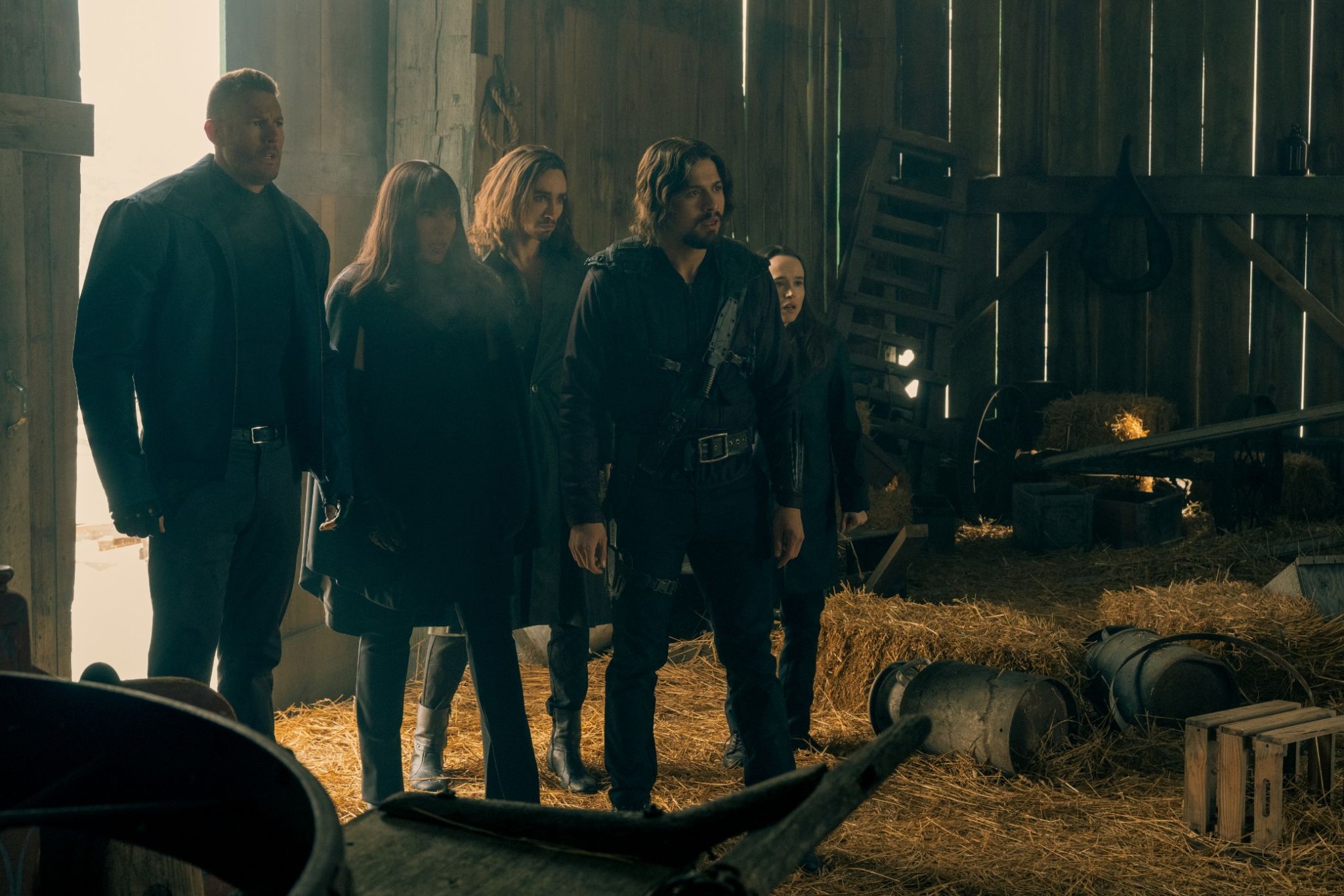
(Christos Kalohoridis/Netflix)
How did you going into the jungle for a month for this role come about?
Well, Steve told me that I was going to be in an asylum and where the plot started. So I talked to a good friend of mine, and I just threw the idea out there, and he said “do it!” Then the next day I found a fight camp in Thailand and just flew the next day.
How do you feel about the rave response that The Umbrella Academy has received so far, especially moving into Season 2? So many people have connected to the show and love it so much.
It feels good. I didn’t expect any of this to come about. I really just thought that I was going to go in and do my best and let the cards fall where they may. But one of the funniest things, for example, is when my parents go back to our hometown in Mexico, they’re known as David and Martha. And when the show came out, now they’re David’s parents. And they’re like “no, no, no, he’s our son.” So, that’s a small little detail that I thought was funny that they’ve told me about.
But, aside from that, I’m very happy. I couldn’t ask for a better team, a better cast, a better group of writers, a better showrunner. And obviously Gerard Way and Gabriel Ba, who are the originators of the comic. I’m really very lucky.
The Umbrella Academy, Season 2, Friday, July 31, Netflix
From TV Guide Magazine
How Hulu's 'Mid-Century Modern' Is a 'Golden Girls' for Our Times
Settle in for some older and bolder laughs with the BFFs of a certain age in the new comedy starring Nathan Lane, Matt Bomer, and Nathan Lee Graham. Read the story now on TV Insider.

